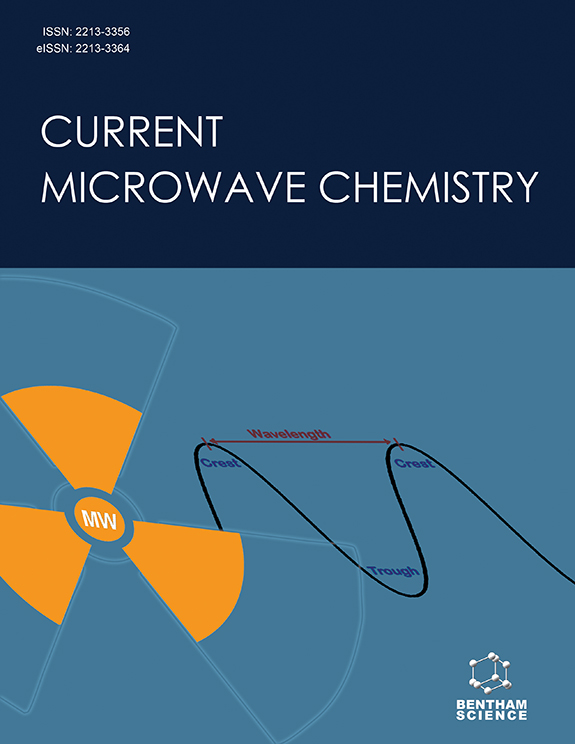
Current Microwave Chemistry
Indexed in: ESCI, JCR, Cabell's Directory/Journalytics
View AllElectrochemistry:
- Analytical Electrochemistry
- Bioelectrochemistry
- Corrosion Science
- Electrocatalysis
- Energy Conversion and Storage
- Environmental Electrochemistry
- Industrial Electrochemistry
- Magnetoelectrochemistry
- Nanoelectrochemistry
- Organic Electrochemistry
- Photoelectrochemistry
- Physical Electrochemistry
- Solid-State Electrochemistry
- Theoretical and Computational Electrochemistry
Photochemistry:
- Atmospheric and Space Photochemistry
- Biological and Medicinal Photochemistry
- Environmental and Atmospheric Photochemistry
- Industrial and Applied Photochemistry
- Inorganic and Organometallic Photochemistry
- Nanophotochemistry
- Organic Photochemistry
- Photoinduced Charge Transfer
- Solar Energy Conversion
- Supramolecular and Material Photochemistry
- Theoretical and Computational Photochemistry
- Ultrafast and Laser Photochemistry
Sonochemistry:
- Environmental Sonochemistry
- Sonocatalysis
- Sonoelectrochemistry
- Sonoluminescence
- Sonomechanics
- Sonophysical Studies
- Sonoprocessing
- Synthetic Sonochemistry
- Ultrasound-Assisted Extraction
Editor-in-Chief:
-
Vladimir K. Ivanov Institute of General and Inorganic Chemistry
Kurnakov Institute of General and Inorganic Chemistry
Moscow
Russia
ISSN: 2213-3356 (Print)
eISSN: 2213-3364 (Online)



